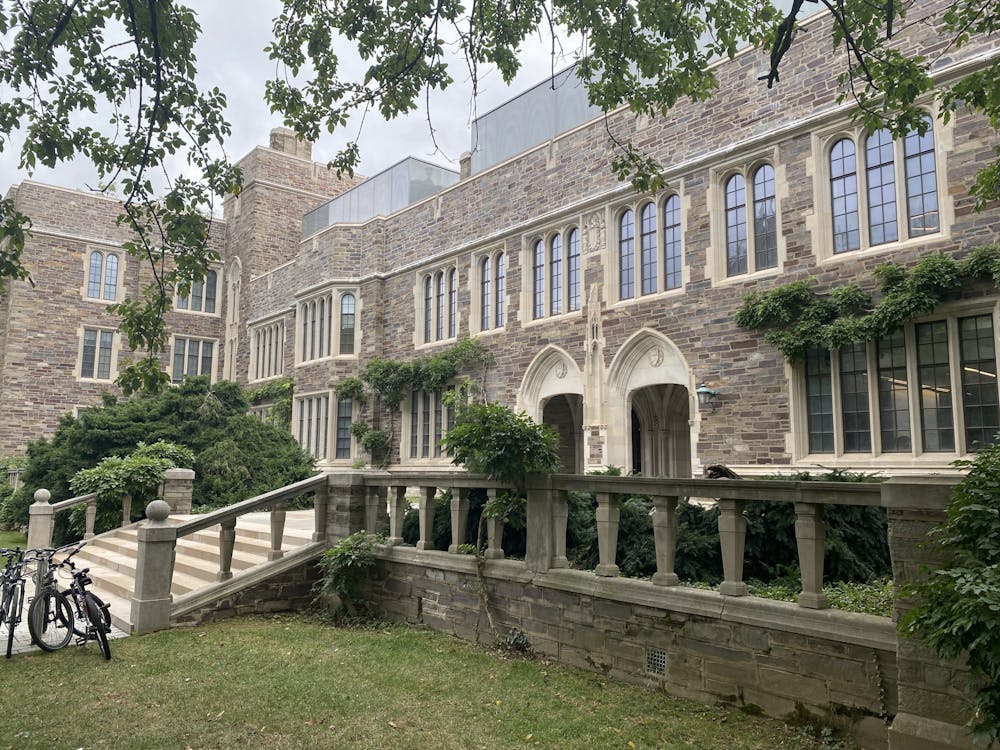When you think of economics, you usually associate it with numbers, dollar bills, and Wall Street. However, the Greek etymology of the word actually means the art of managing a household.
In February of this year, Anne-Marie Slaughter ’80 and Elizabeth Garlow GS ’17 added to the growing critique of traditional economic metrics like gross domestic product and gross national product — which critics argue do not accurately measure societal well-being — with their article “A Worldview of Care & a New Economics.” In the article, Slaughter and Garlow recommend a more humane and care-centered approach towards economics.
Slaughter served as the Dean of the School of Public and International Affairs (SPIA) and a professor of Politics and International Affairs from 2002–2009. Elizabeth Garlow holds a Master’s in Public Affairs (MPA) from SPIA. Now, they both work for the “think-and-action” tank New America.
For Slaughter and Garlow, care is defined as “the investment of time and energy and talent into the flourishing of another human being,” Slaughter told The Daily Princetonian.
Their new article stresses that this definition of care must be understood beyond physical activities such as feeding, bathing, or dressing because the main value of care lies in the emotional dimension that arises from human connections.
Slaughter and Garlow draw on Native Hawaiian philosophy as their main source for understanding care. In an interview with the ‘Prince,’ Garlow honed in on the value of “mālama,” an idea that combines concepts of care and enlightenment. This way of thinking suggests that “we become more of who we are meant to become when we are in caring postures and caring relationships with one another and with āina, with the earth,” Garlow said.
The study lays out countervailing theories that, according to Slaughter and Garlow, undermine care. They describe, for example, how market fundamentalism has “elevated individualism and competition as the defining characteristics of our human social relations at the expense of care and connection.”
Slaughter and Garlow argue that unpaid caregivers, such as spouses caring for partners with chronic illnesses or children assisting aged parents, reflect a status quo that does not prioritize care. Under their proposed framework, new economic policies should focus on improving the social and economic protections for unpaid caregivers. The article also cited the COVID-19 pandemic as another example where the current system failed to recognize the value of care.
The care-based model is important because of its “scalability,” Slaughter told the ‘Prince.’ Scalability, to Slaughter, is the idea that the care-based model can be applied to small-scale issues or large-scale issues like the mental health crisis in the United States. For Slaughter, scalability proves that isolated initiatives like the Just Futures Project in Washington state, the Vermont Prosperity Project, or the Aina Aloha Economic Declaration in Hawaii can be implemented on a national level.
Slaughter also said that such a model could help address the mental health crisis among young adults, especially college students.
“We need to ensure that students who are under a lot of competition also have time and support for connected activities with others,” Slaughter said. “That does not mean social media. That means really being connected.”
Slaughter said universities should not just address mental health as a medical issue, providing drugs and counseling, but should look at “the root of the problem, which is the radical imbalance between competition and connection.”

On the federal policy side, the obvious hurdle for Slaughter and Garlow is convincing the government to prioritize care. “What needs to happen is a government in which caregivers are empowered,” Slaughter said. She recommended the first step being a Congress that “reflect[s] the number of caregivers that we have in the population as a whole.”
Garlow added “the core impetus is recognizing a model of horizontality and kinship as values that drive policy design and implementation.”
Garlow emphasized that a care-based approach is the “antidote to a worldview of hegemony or of domination.” She hopes more places, whether on the federal, state, or local level, can “[lean] into participatory and deliberative democracy practices as a path to doing policy development for communities that are oriented around well-being.”
Elaine Gao is a contributing Data and Research writer for the ‘Prince.’
Please send any corrections to corrections[at]dailyprincetonian.com.








